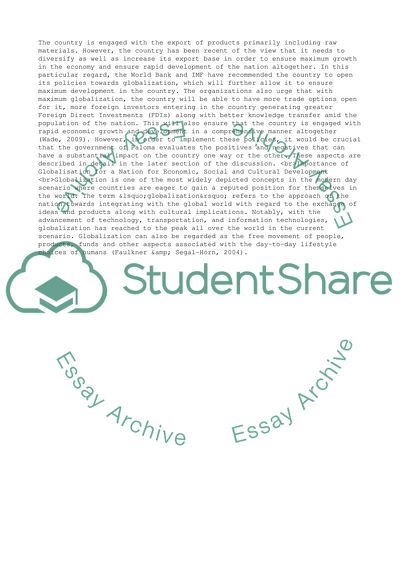Cite this document
(Implications of Globalisation for Palomia Dissertation, n.d.)
Implications of Globalisation for Palomia Dissertation. Retrieved from https://studentshare.org/business/1631448-the-first-task-is-linked-to-learning-outcome-1-you-are-required-to-write-a-report-on-the-following-palomia-is-a-developing-but-landlocked-country-with-an-average-per-capita-of-3500-at-market-exchange-rates-its-population-of-20-million-is-35-urban
Implications of Globalisation for Palomia Dissertation. Retrieved from https://studentshare.org/business/1631448-the-first-task-is-linked-to-learning-outcome-1-you-are-required-to-write-a-report-on-the-following-palomia-is-a-developing-but-landlocked-country-with-an-average-per-capita-of-3500-at-market-exchange-rates-its-population-of-20-million-is-35-urban
(Implications of Globalisation for Palomia Dissertation)
Implications of Globalisation for Palomia Dissertation. https://studentshare.org/business/1631448-the-first-task-is-linked-to-learning-outcome-1-you-are-required-to-write-a-report-on-the-following-palomia-is-a-developing-but-landlocked-country-with-an-average-per-capita-of-3500-at-market-exchange-rates-its-population-of-20-million-is-35-urban.
Implications of Globalisation for Palomia Dissertation. https://studentshare.org/business/1631448-the-first-task-is-linked-to-learning-outcome-1-you-are-required-to-write-a-report-on-the-following-palomia-is-a-developing-but-landlocked-country-with-an-average-per-capita-of-3500-at-market-exchange-rates-its-population-of-20-million-is-35-urban.
“Implications of Globalisation for Palomia Dissertation”, n.d. https://studentshare.org/business/1631448-the-first-task-is-linked-to-learning-outcome-1-you-are-required-to-write-a-report-on-the-following-palomia-is-a-developing-but-landlocked-country-with-an-average-per-capita-of-3500-at-market-exchange-rates-its-population-of-20-million-is-35-urban.


